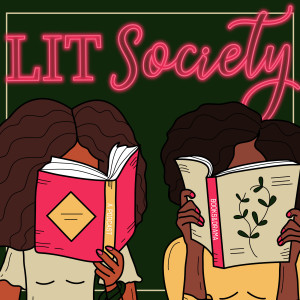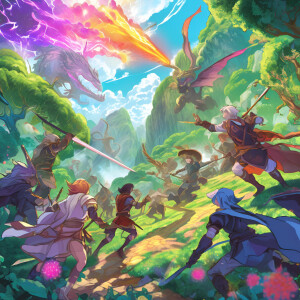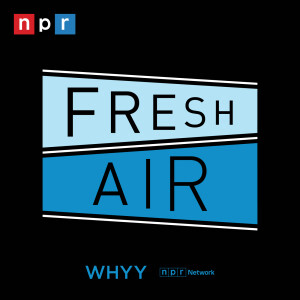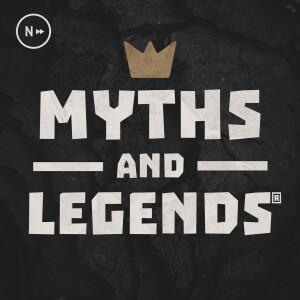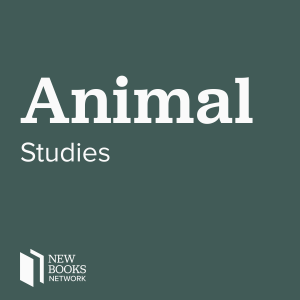

New Books in Animal Studies
https://feeds.megaphone.fm/animalstudiesEpisode List

Paul Thagard, "Bots and Beasts: What Makes Machines, Animals, and People Smart?" (MIT Press, 2021)
Octopuses can open jars to get food, and chimpanzees can plan for the future. An IBM computer named Watson won on Jeopardy! and Alexa knows our favorite songs. But do animals and smart machines really have intelligence comparable to that of humans? In Bots and Beasts: What Makes Machines, Animals, and People Smart? (MIT Press, 2021), Paul Thagard looks at how computers (“bots”) and animals measure up to the minds of people, offering the first systematic comparison of intelligence across machines, animals, and humans.Thagard explains that human intelligence is more than IQ and encompasses such features as problem solving, decision making, and creativity. He uses a checklist of twenty characteristics of human intelligence to evaluate the smartest machines—including Watson, AlphaZero, virtual assistants, and self-driving cars—and the most intelligent animals—including octopuses, dogs, dolphins, bees, and chimpanzees. Neither a romantic enthusiast for nonhuman intelligence nor a skeptical killjoy, Thagard offers a clear assessment. He discusses hotly debated issues about animal intelligence concerning bacterial consciousness, fish pain, and dog jealousy. He evaluates the plausibility of achieving human-level artificial intelligence and considers ethical and policy issues. A full appreciation of human minds reveals that current bots and beasts fall far short of human capabilities.Galina Limorenko is a doctoral candidate in Neuroscience with a focus on biochemistry and molecular biology of neurodegenerative diseases at EPFL in Switzerland. To discuss and propose the book for an interview you can reach her at galina.limorenko@epfl.ch. Learn more about your ad choices. Visit megaphone.fm/adchoicesSupport our show by becoming a premium member! https://newbooksnetwork.supportingcast.fm/animal-studies

Heather Browning and Walter Veit, "What Are Zoos For?" (Policy Press, 2024)
Are zoos an anachronism in the 21st century when we can watch animals in their natural habitat, close-up from our couches without worrying about cruelty? Should they go the way of other bygone era ‘spectacles’ and ‘attractions’ that we now regard as barbaric? There are vocal campaigners and activists who believe so. Heather Browning and Walter Veit disagree, but they acknowledge there is a case to be answered. In What Are Zoos For? (Bristol University Press, 2024) they test the common justifications for zoos (entertainment, education, research, conservation) against the evidence and suggest what the best zoos of the future should look like to ensure that they are primarily for animals and not just for people. Heather Browning is Lecturer in Philosophy at the University of Southampton. Her primary research interests are animal welfare, ethics, and consciousness. Previously, she worked for many years as a zookeeper and zoo animal welfare officer, interested in the practical application of animal welfare measurement. Walter Veit is Lecturer in Philosophy at the University of Reading and an external member of the Munich Center for Mathematical Philosophy, Ludwig Maximilian University of Munich. He’s also the author of A Philosophy for the Science of Animal Consciousness (Routledge, 2023). Most of his ongoing research is on the consciousness and welfare of animals and AIs. Kyle Johannsen is Sessional Faculty Member in the Department of Philosophy at Trent University. His most recent authored book is Wild Animal Ethics: The Moral and Political Problem of Wild Animal Suffering (Routledge, 2021). Learn more about your ad choices. Visit megaphone.fm/adchoicesSupport our show by becoming a premium member! https://newbooksnetwork.supportingcast.fm/animal-studies

David Chaffetz, "Raiders, Rulers, and Traders: The Horse and the Rise of Empires" (Norton, 2025)
No animal is so entangled in human history as the horse. The thread starts in prehistory, with a slight, shy animal, hunted for food. Domesticating the horse allowed early humans to settle the vast Eurasian steppe; later, their horses enabled new forms of warfare, encouraged long-distance trade routes, and ended up acquiring deep cultural and religious significance. Over time, horses came to power mighty empires in Iran, Afghanistan, China, India, and, later, Russia. Genghis Khan and the thirteenth-century Mongols offer the most famous example, but from ancient Assyria and Persia, to the seventeenth-century Mughals, to the high noon of colonialism in the early twentieth century, horse breeding was indispensable to conquest and statecraft. Scholar of Asian history David Chaffetz tells the story of how the horse made rulers, raiders, and traders interchangeable, providing a novel explanation for the turbulent history of the “Silk Road,” which might be better called the Horse Road. Drawing on recent research in fields including genetics and forensic archeology, Chaffetz presents a lively history of the great horse empires that shaped civilization. David Chaffetz is an independent scholar with a lifelong passion for Middle Eastern and Inner Asian history. His 1981 book, several times republished, A Journey through Afghanistan, earned praise from Owen Lattimore, the then doyen of Inner Asian studies in America and the UK. He is a regular contributor to the Asian Review of Books, and has written for the South China Morning Post and the Nikkei Asian Review. His most recent book, Three Asian Divas, describes the important role of elite women entertainers in the transmission of traditional Asian culture. Morteza Hajizadeh is a Ph.D. graduate in English from the University of Auckland in New Zealand. His research interests are Cultural Studies; Critical Theory; Environmental History; Medieval (Intellectual) History; Gothic Studies; 18th and 19th Century British Literature. YouTube channel. Twitter. Learn more about your ad choices. Visit megaphone.fm/adchoicesSupport our show by becoming a premium member! https://newbooksnetwork.supportingcast.fm/animal-studies

Emma Marris, "Wild Souls: Freedom and Flourishing in the Non-Human World" (Bloomsbury, 2021)
In Wild Souls: Freedom and Flourishing in the Non-Human World (Bloomsbury Publishing, 2021), Emma Marris wrestles with big ethical questions facing the conservation field. Emma takes us through several experiences that informed the book, exposing us to relevant on-the-ground decisions impacting the life or death of animals. When the interests of individual animals conflict with the goals of biodiversity preservation, is it okay to kill? Are any animals truly wild now that humans have directly altered so much of their habitat? How do we balance the rights of introduced species with those already established within an ecosystem? To start engaging these, and other questions, Emma takes us through a needed crash course in ethics, specifically environmental ethics. Much like her previous work, we are exposed to new ways of thinking about old problems. Listening in will not disappoint. Learn more about your ad choices. Visit megaphone.fm/adchoicesSupport our show by becoming a premium member! https://newbooksnetwork.supportingcast.fm/animal-studies

Julia Brock, "Closed Seasons: The Transformation of Hunting in the Modern South" (UNC Press, 2025)
In a unique and personal exploration of the game and fish laws in Alabama, Georgia, and Mississippi from the Progressive Era to the 1930s, Julia Brock offers an innovative history of hunting in the New South. The implementation of conservation laws made significant strides in protecting endangered wildlife species, but it also disrupted traditional hunting practices and livelihoods, particularly among African Americans and poor whites. Closed Seasons: The Transformation of Hunting in the Modern South (UNC Press, 2025) highlights how hunting and fishing regulations were relatively rare in the nineteenth century, but the emerging conservation movement and the rise of a regional "sportsman" identity at the turn of the twentieth century eventually led to the adoption of state-level laws. Once passed, however, these laws were plagued by obstacles, including insufficient funding and enforcement. Brock traces the dizzying array of factors—propaganda, racial tensions, organizational activism, and federal involvement—that led to effective game and fish laws in the South. Host Byline: Craig Gill is a writer, researcher and historian based in Vancouver, BC. He is the author of Caddying on the Color Line, a history of African American golf caddies in the U.S. South. Learn more about your ad choices. Visit megaphone.fm/adchoicesSupport our show by becoming a premium member! https://newbooksnetwork.supportingcast.fm/animal-studies
Create Your Podcast In Minutes
- Full-featured podcast site
- Unlimited storage and bandwidth
- Comprehensive podcast stats
- Distribute to Apple Podcasts, Spotify, and more
- Make money with your podcast

